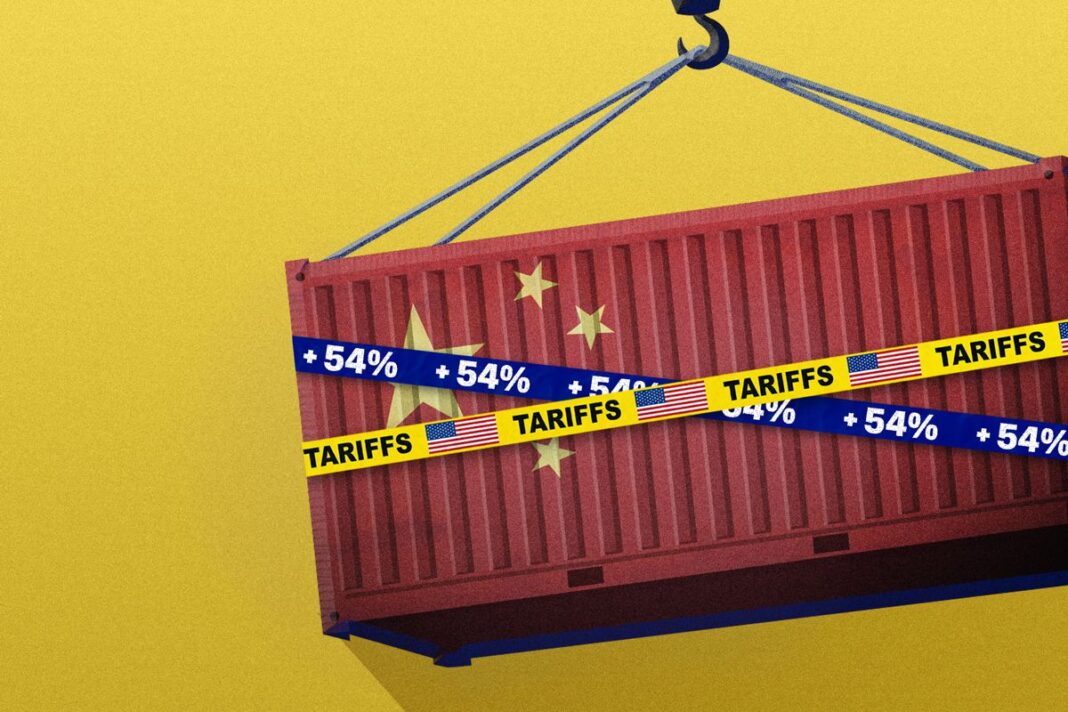Experts say the tariff standoff is beyond economic conflict; Trump and Xi are contesting U.S. economic might versus communist political control.
News Analysis
As reciprocal tariffs on U.S trading partners are set to take effect on Wednesday, President Donald Trump has focused much of his attention on the Chinese regime.
In response to Trump announcing 34 percent in new tariffs on China—bringing total additional U.S. tariffs to 54 percent—Beijing responded with incremental 34 percent tariffs on U.S. goods, becoming the first country to retaliate.
Trump raised the stakes on Monday, threatening an extra 50 percent levy on Chinese goods if the regime doesn’t withdraw its 34 percent retaliatory tariff by April 8. The new U.S. rate would take effect on April 9, and all negotiations with China would also end. The Chinese regime’s Commerce Ministry responded on April 8, saying Beijing will not accept Trump’s demands and vowed to “fight to the end.”
So far, more than 50 countries have asked to negotiate with the United States, according to Kevin Hassett, head of the White House’s National Economic Council and Treasury Secretary Scott Bessent.
Several experts say that while many world leaders will eventually meet U.S. demands after the initial kicking and screaming, Chinese Communist Party (CCP) leader Xi Jinping will not—even with the added ultimatum.
“Xi has sold himself domestically and internationally as the guy standing up to America, and people that want to stand up to America should get in line behind chairman Xi,” Christopher Balding, a senior fellow at the Henry Jackson Society, a UK-based think tank, told The Epoch Times.
“It would be catastrophic for Xi to be seen as caving in to Trump in any way,” he said.
Experts also said the CCP cannot and does not want to give the United States what it wants: for China to control its fentanyl precursor exports and open up its market.
The current U.S.–China tariff standoff is more than a trade conflict, according to Yeh Yao-Yuan, a professor of international studies at the University of St. Thomas in Houston.
By Terri Wu






